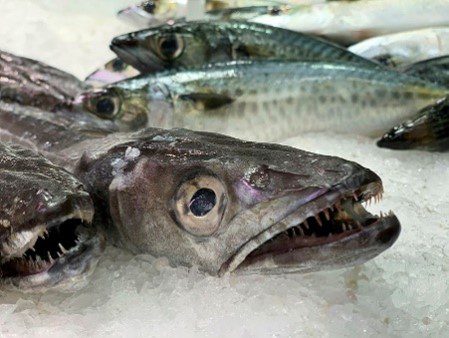Oceana calls for strong political leadership to implement new 2030 Mediterranean fisheries strategy
Protection of Vulnerable Marine Ecosystems and greater transparency of fishing vessels must take priority
Press Release Date: July 1, 2021
Location:
Contact:
Emily Fairless | email: efairless@oceana.org | tel.: +32 478 038 490
Ahead of the adoption on 9th July of a new 2030 strategy for the General Fisheries Commission for the Mediterranean (GFCM), Oceana is calling on fisheries ministers from the Mediterranean and Black Sea to deliver its actions without delay. In particular, Oceana urges ministers to prioritize the protection of vulnerable marine ecosystems and essential fish habitats, as well as the fight against illegal fishing, by updating and making public information on vessels, especially those fishing inside Fisheries Restricted Areas (FRAs).
“Ministers already committed to act against overfishing in 2017, but failed to live up to their pledges. True political will and additional resources are needed to protect Mediterranean ecosystems from illegal and destructive fishing, and to safeguard fish populations and seabed carbon stores. The Mediterranean is among the most vulnerable regions to the impacts of climate change, and fishers across the region rely on swift and determined action by the GFCM,” said Vera Coelho, Oceana’s Senior Director, Advocacy in Europe.
Strong political leadership is required to realise the ambition in this strategy and rebuild the most overexploited sea in the world. Oceana deplores that some of the actions from the strategy were already committed under the MedFish4Ever ministerial Declaration in 2017 but have not yet been delivered. 75% of Mediterranean fish stocks are currently exploited outside safe biological limits 1, and illegal fishing persists despite commitments to tackle it.
With only 3.5% of the Mediterranean Sea currently designated in the form of FRAs, important gaps in protection remain. There is an urgent need to stop destructive fishing in biodiversity hotspots, such as cold-water corals and other areas important for juveniles. Oceana is developing a proposal to protect one of the largest cold-water coral reefs in the Mediterranean Sea, the Cabliers seamounts located in the Alboran Sea. The governments of Spain and Morocco should use this opportunity to work together and protect this unique deep-sea biodiversity hotspot and thus lead the way in protecting and restoring the Mediterranean Sea.
Oceana also urges fisheries ministers to stop illegal fishing from destroying fragile ecosystems or nursery grounds, by agreeing to update and make public key information in the GFCM Authorised Vessel List, especially concerning vessels fishing inside FRAs. Transparency of fishing data is a strong lever to improve accountability and ensure that fishing regulations are respected.
 |
 |
| European hake – the most overexploited species in the Mediterranean | A cold-water coral reef at Cabliers Bank |
This release is also available in: Spanish | French
Learn more:
Oceana report “Transparency and compliance weaknesses in GFCM Fisheries Restricted Areas”
Oceana Factsheet “An essential fish habitats network to rebuild Mediterranean fisheries”
Oceana factsheet “Protecting Cabliers: Exceptional Mediterranean coral reefs”
# # #
Notes to editors:
1. Food and Agricultural Organization of the UN (Dec 2020): http://www.fao.org/gfcm/news/detail/en/c/1364435/
#2Seas1Vision #MedFish4Ever

